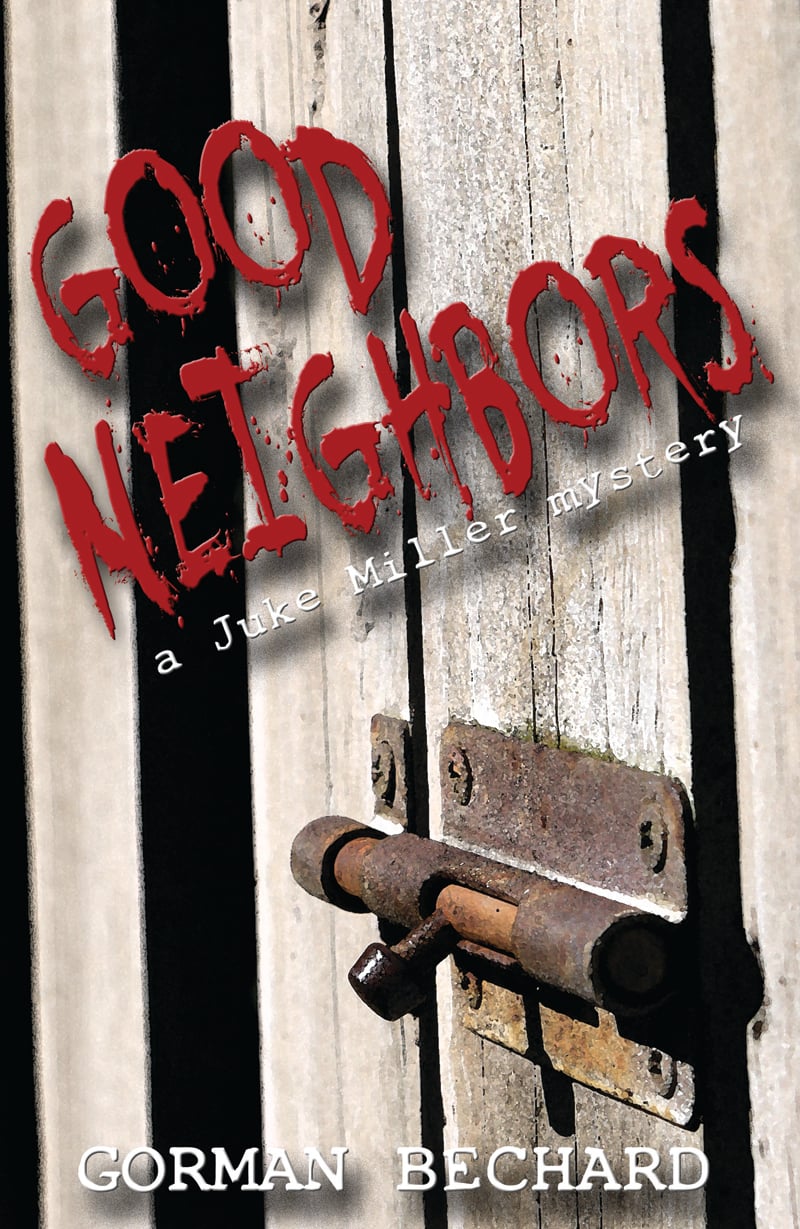Good Neighbors, a novel by Gorman Bechard
From Publishers Weekly In his first mystery, novelist Bechard (The Second Greatest Story Ever Told; Balls) deftly captures the story's working-class neighborhood setting. Juke Miller, an ex-cop who left the force after killing an innocent person, now runs a bar in Harmony, Conn., a slightly downscale suburb of New Haven. When Juke's best friend and neighbor, Reggie DeLillo, is killed by a cop after apparently shooting a teenage neighbor who poisoned his beloved dog, Miller quickly doubts the official version of the incident. Aided by his former partner and a friendly female officer, Juke angers his old adversary, Harmony police chief Marion Bradbury, by suggesting that somebody else killed the teenager. Ballistics evidence proves Juke right: now he has to help nail the real killer. Was it Reggie's overheated young wife, Anabelle, who had liaisons all over townAincluding one with the cop who shot her husband? Or is the secret buried within the troubled teenager's outwardly normal family? With further attention Juke could turn into a character as fully dimensioned as Lawrence Block's Matt ScudderAanother guilt-ridden ex-cop. In the meantime, Bechard's ear for dark comedy and eye for social nuance are this book's strong suits. Copyright 1998 Reed Business Information, Inc.
From Kirkus Reviews The day after Reggie DeLillos dog Molasses was poisoned by the boy next door, Reggie, who threatened to kill David Robertson when the boy admitted what he'd done, is discovered in the Robertsons' house standing over David's dead body with gun drawn. Officer Peter Castagnetti, the rookie who stumbles onto the scene, draws his own weapon and shoots Reggie dead. The sad story is over--except that the bullet dug out of David's body doesn't match the automatic Reggie was brandishing. Reggie's friend Juke Miller, an ex-cop who took early retirement seven years ago--after his wife was raped and murdered by parties unknown, and Internal Affairs didn't buy his story about who drew first in Juke's shootout with a criminal creep--can see why Reggie allowed Castagnetti to kill him, even going so far as to draw his fire. But if Reggie didn't shoot David Robertson, who did, and why? Stirring up the ashes of misnamed Harmony, Conn., Juke looks for a reason the straight-A high-school football hero would've poisoned Molasses in the first placeand comes up with a roll of photos pointing to a secret even uglier than the scenario he'd started with. Bechard (The Second Greatest Story Ever Told, 1991, etc.) puts so much less energy into the neighborhood mystery than into the neighborhood that a series starring sensitive, tormented Juke seems assured. -- Copyright ©1998, Kirkus Associates, LP. All rights reserved.
404 pages
Novel will be signed by author Gorman Bechard
